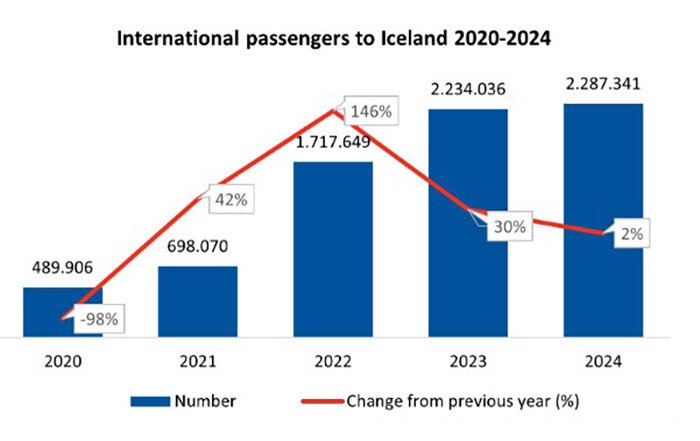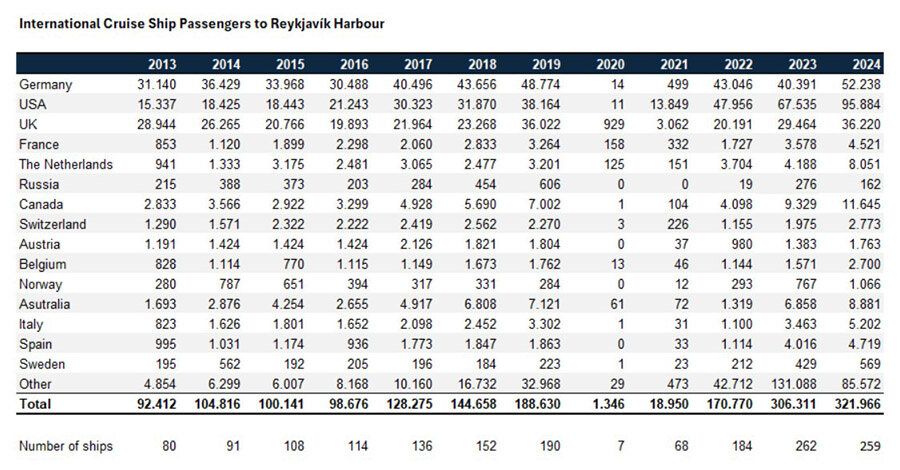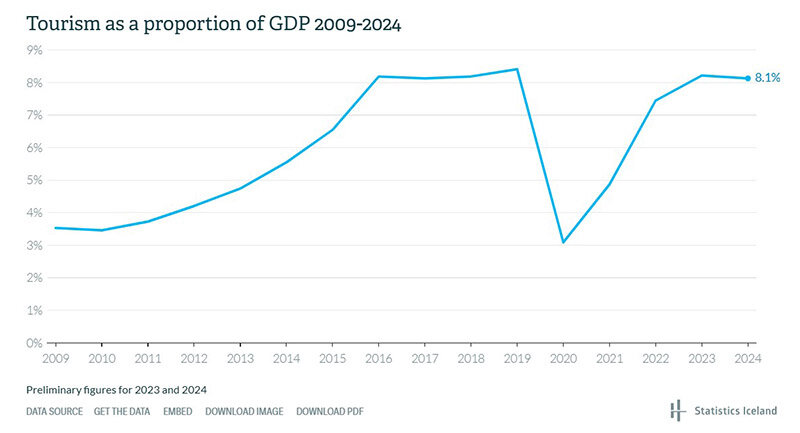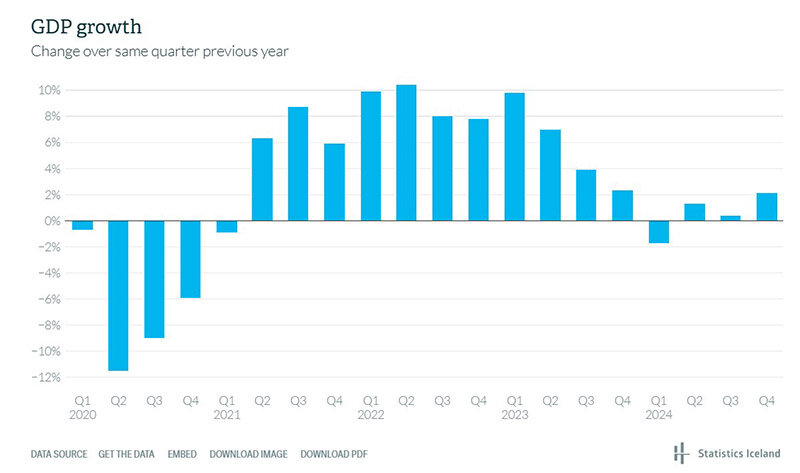Tourism & hospitality / Analytics / News / Iceland / Tourism Iceland / Real Estate Iceland 17.03.2025
Iceland to Reduce Tourism: New Rules to Affect Visits and Short-Term Rentals

Icelandic Prime Minister Kristínna Flósadóttir has announced that the increasing influx of tourists is having negative consequences. The excessive growth of this industry on the island, located between Norway and Greenland, is putting a strain on roads, healthcare, and the housing market, writes Bloomberg.
The hospitality sector became a key driver of Iceland’s economy alongside support from the International Monetary Fund following the banking collapse of 2008, which led to a recession. After a sharp halt caused by the pandemic, tourism growth has resumed, but its negative effects are becoming more apparent.
Prime Minister Kristínna Flósadóttir noted that people visiting Iceland are unlikely to enjoy being in crowded tourist hotspots. They come to admire the island’s unique nature and often seek solitude. Therefore, the government may need to change the current regulations.
At the end of 2024, Iceland’s population increased by 1.5% to 389,444, according to the Icelandic Statistics Office. Meanwhile, the total number of foreign tourists reached 2.3 million.

Almost all of them (2.26 million, or 98.9%) arrived through Keflavík International Airport. Around 18,500 visitors traveled by ferry or via the port of Seyðisfjörður.

Additionally, the island regularly hosts cruise ship passengers, but they are considered day-trippers and are not included in the above figures. In 2024, around 322,000 such travelers arrived at the port of Reykjavík, a record high, although 306,000 visited in 2023.

The island lacks the infrastructure to accommodate such a large number of tourists. As a result, authorities have started implementing new measures. Since January 2024, as ETIAS reminds, Iceland has reinstated a tourist accommodation tax that was temporarily suspended during the pandemic. Hotels and guesthouses now charge a fee of 600 ISK ($4.36) per room, campsites and mobile homes 300 ISK ($2.18), and cruise ships docking at Icelandic ports 1,000 ISK ($7.26) per passenger.
Experts note that once the European Travel Information and Authorization System (ETIAS) is implemented, travelers from 60 countries will also have to pay an additional €7 for travel authorization. Combined with the tourist tax, the cost of a hotel stay will nearly double. However, Icelandic authorities appear unbothered by the potential decline in tourist numbers, as the new policy aims to reduce the country’s economic dependence on tourism.
Before COVID-19, tourism accounted for 8.2% of Iceland’s GDP. After a decline during the pandemic, the sector rebounded to this level in 2023 but slightly decreased to 8.1% in 2024. The government now plans to focus more on high-productivity industries, such as data centers and the expansion of clean energy production.

The cabinet, which came to power after snap elections in November 2024, continues to develop a plan to regulate foreign visitor numbers. Officials also promise to restrict short-term rentals through services like Airbnb.
It is worth noting that Iceland is considered a prosperous country, despite a challenging 2024. The country's GDP grew by just 0.5% in real terms to 4,616 billion ISK ($34.4 billion). The main driver of growth was gross fixed capital formation (7.5%), with both government and private sector spending contributing positively.









